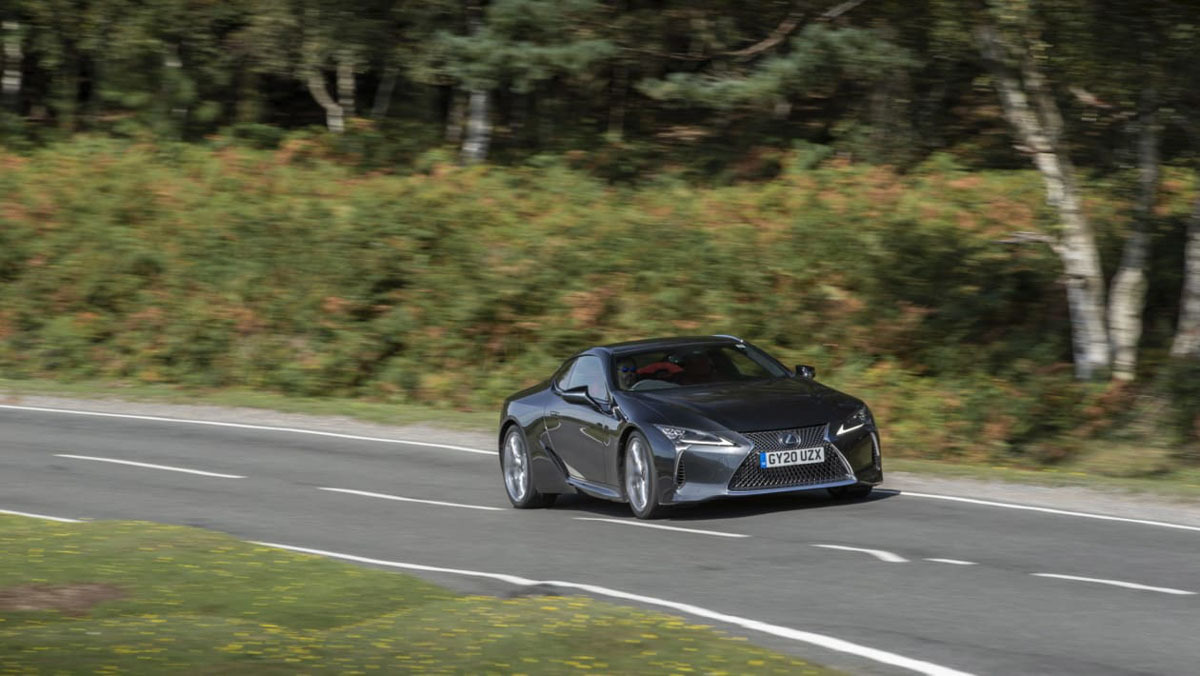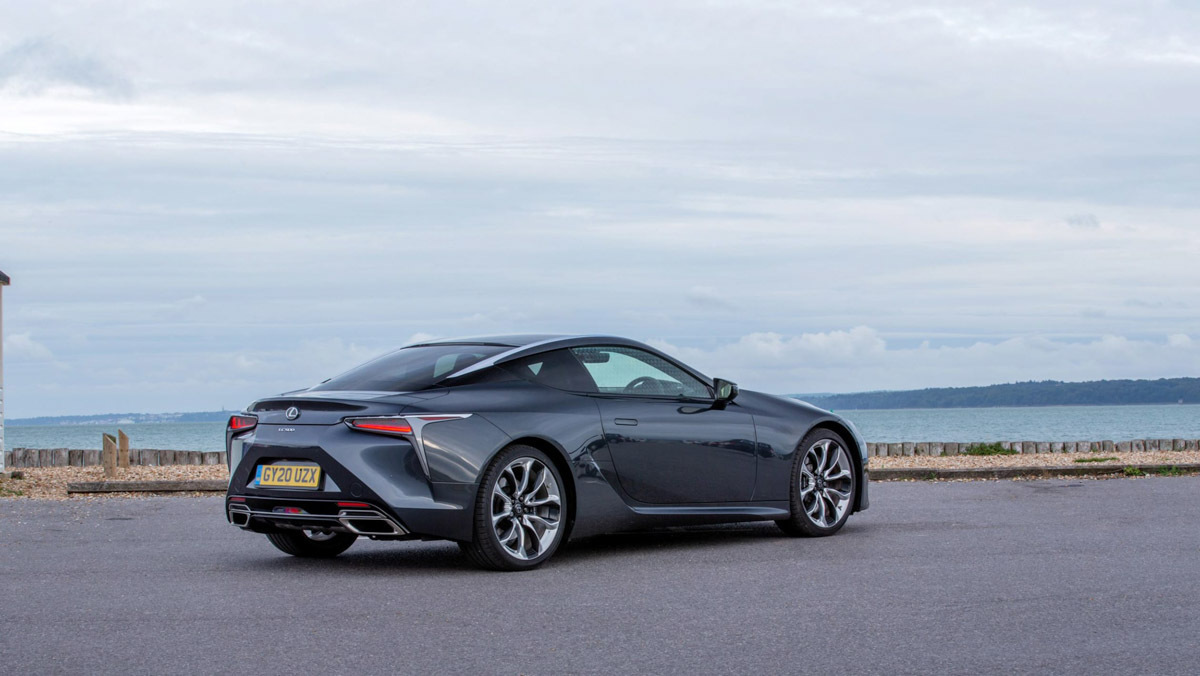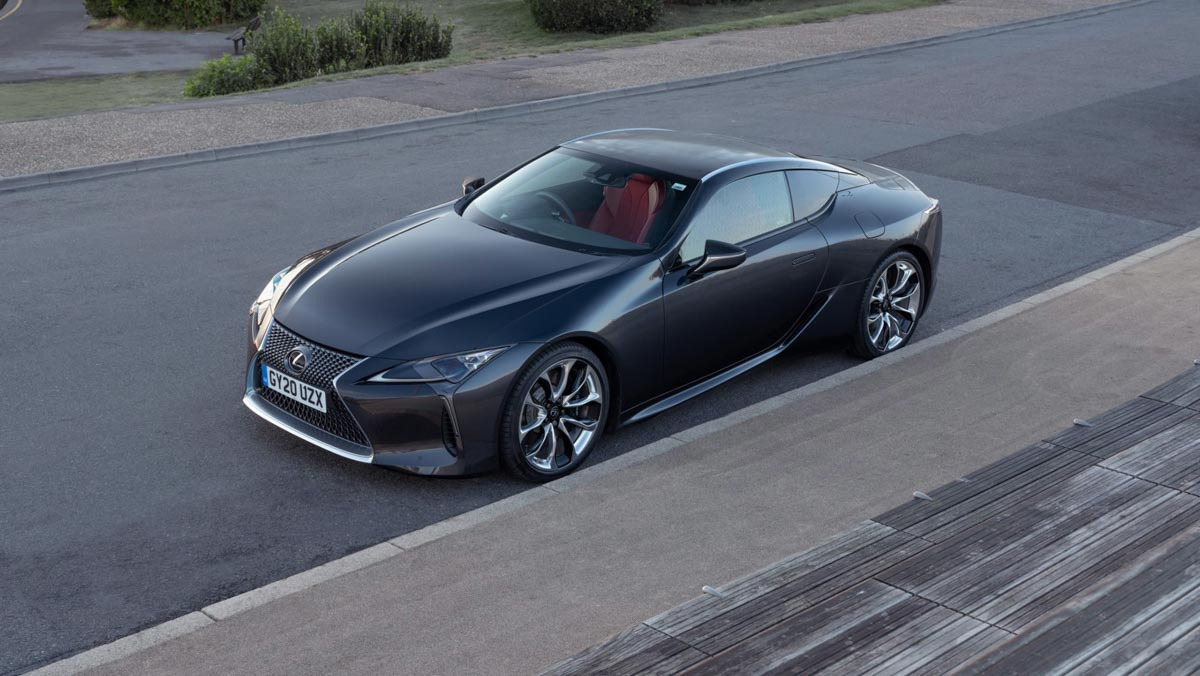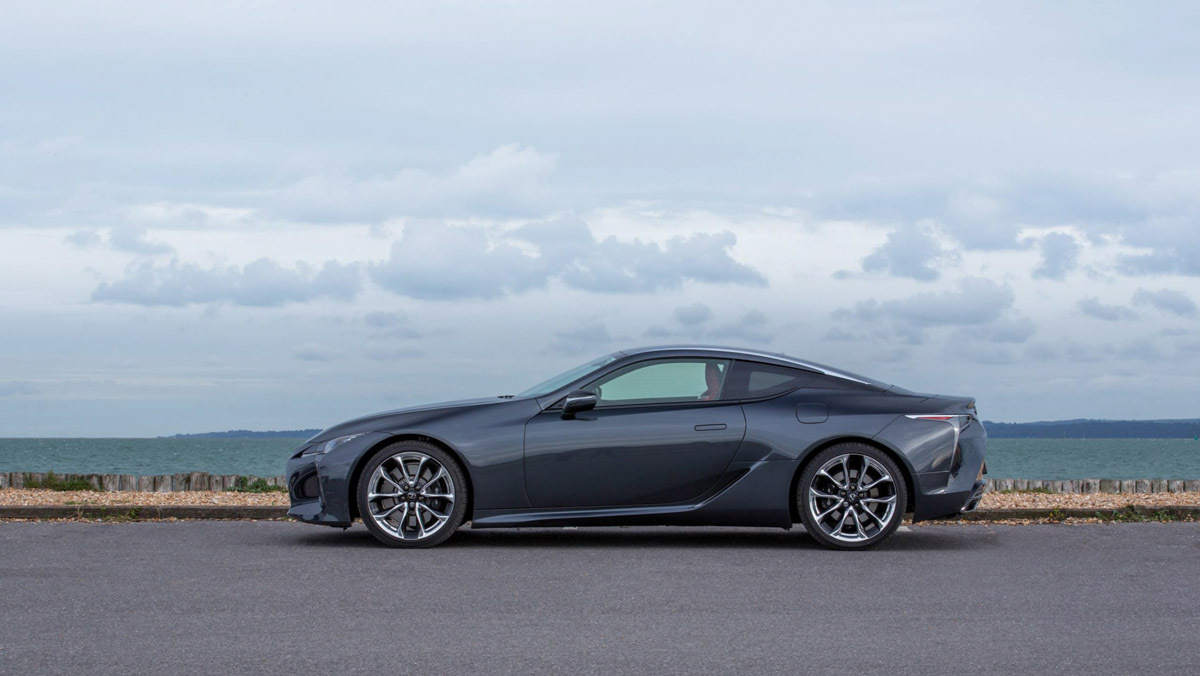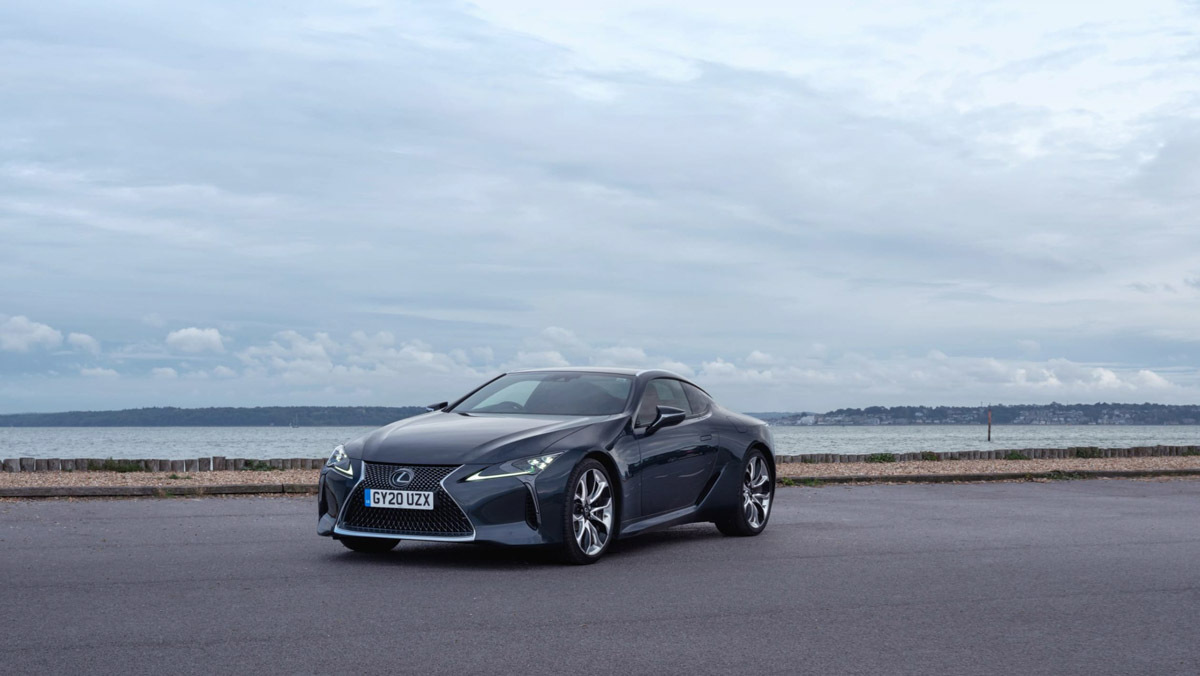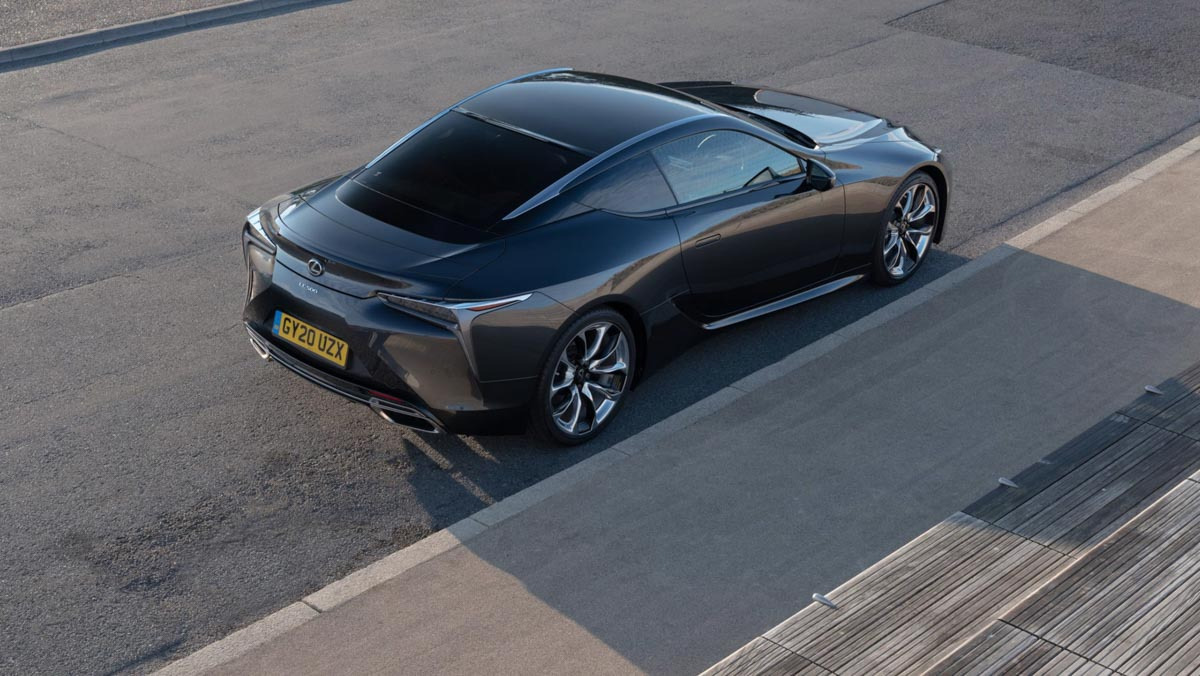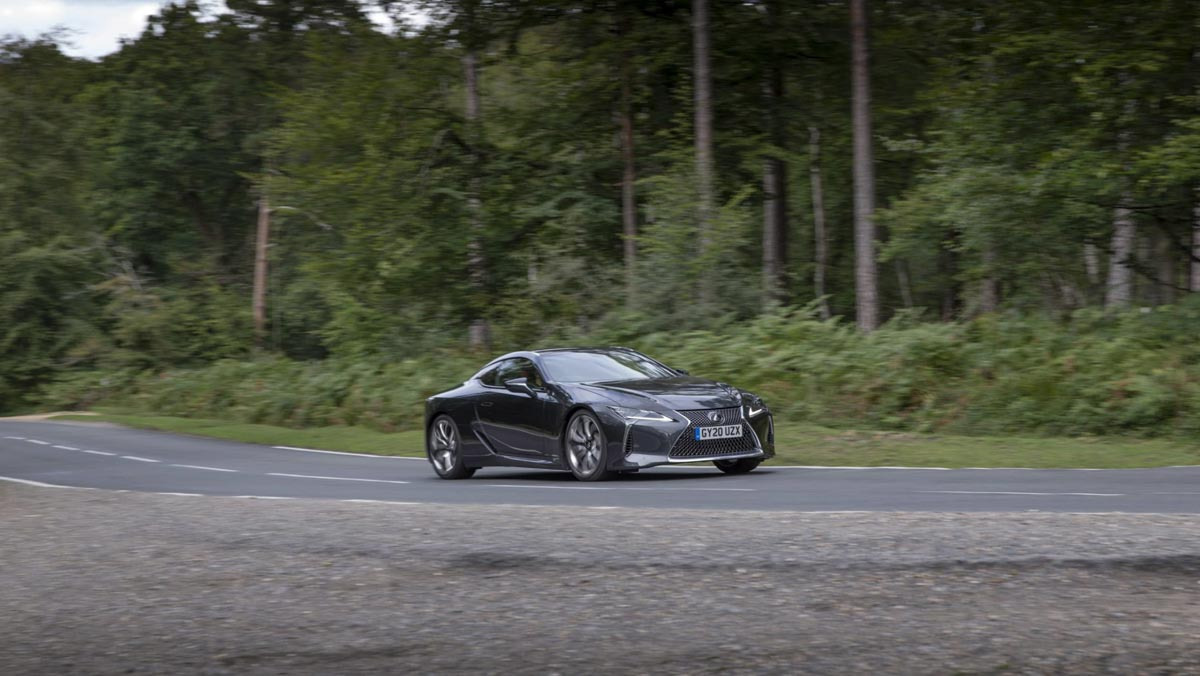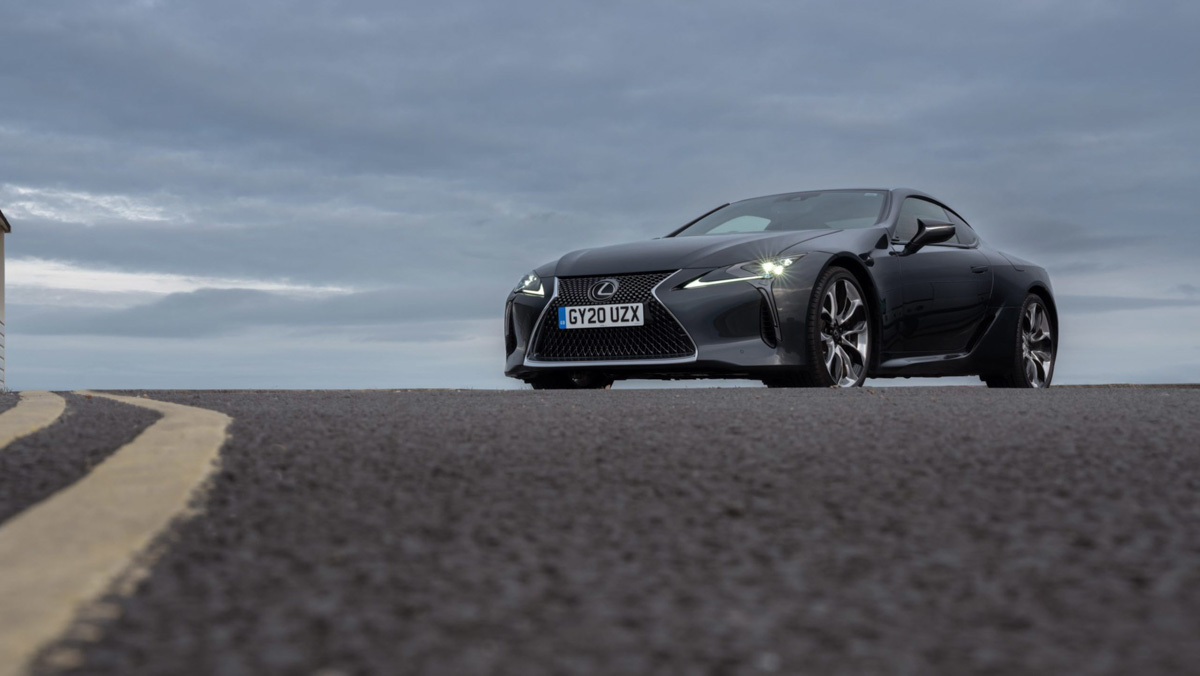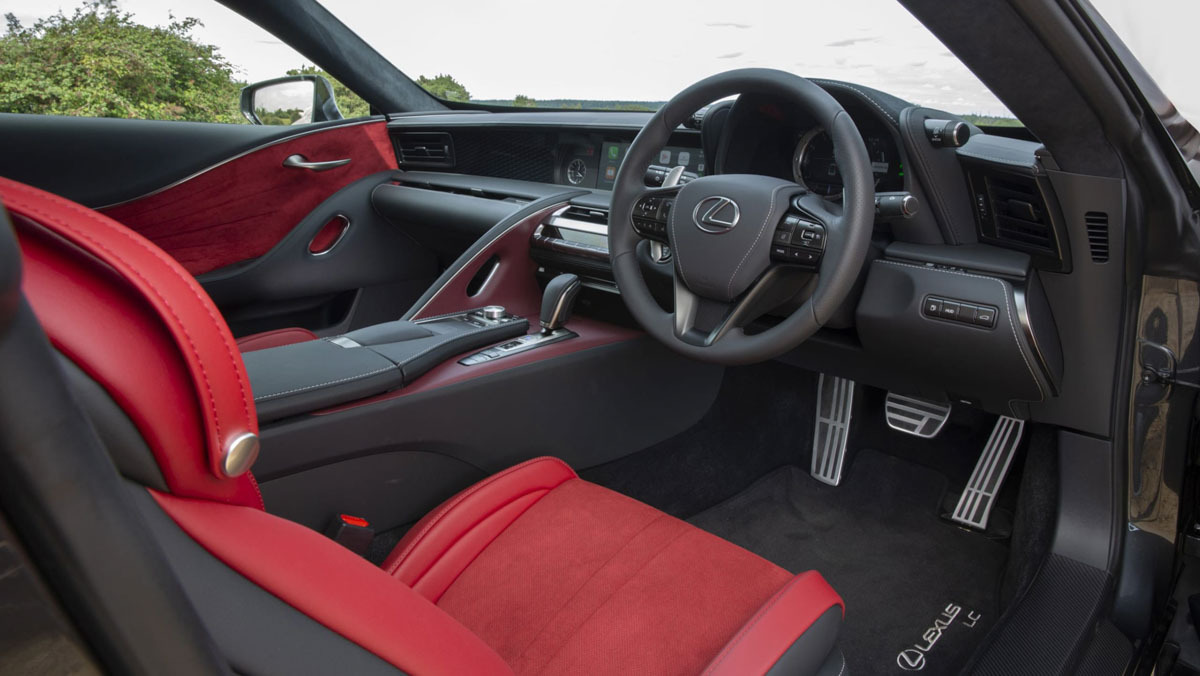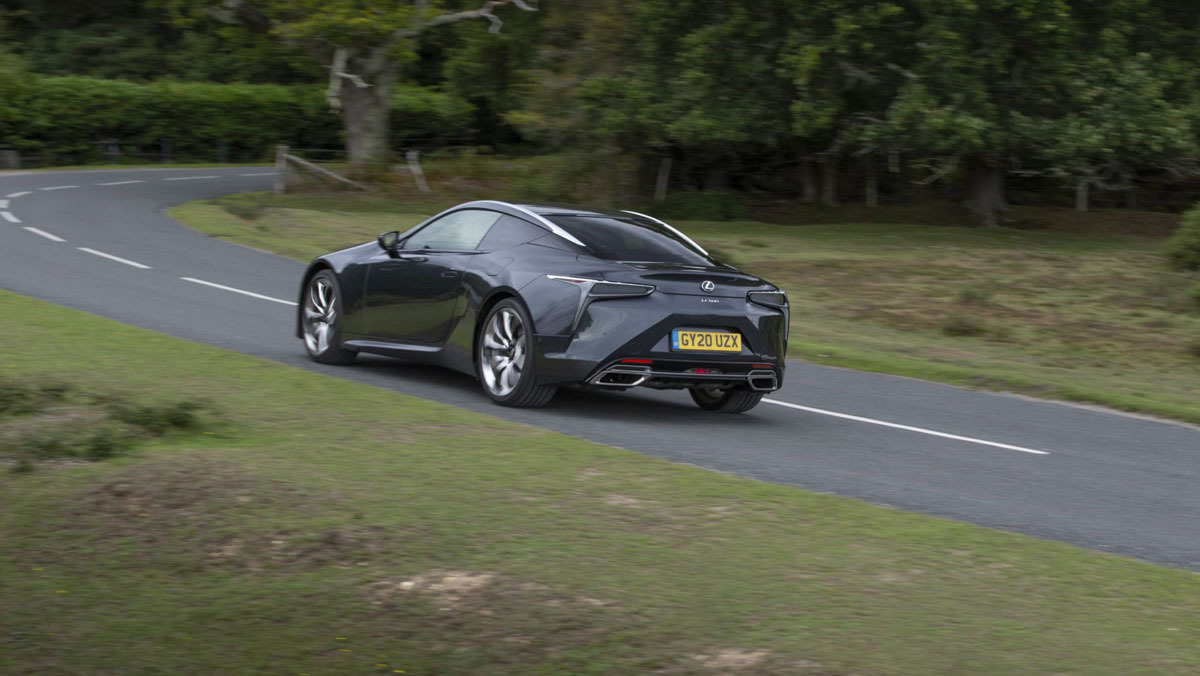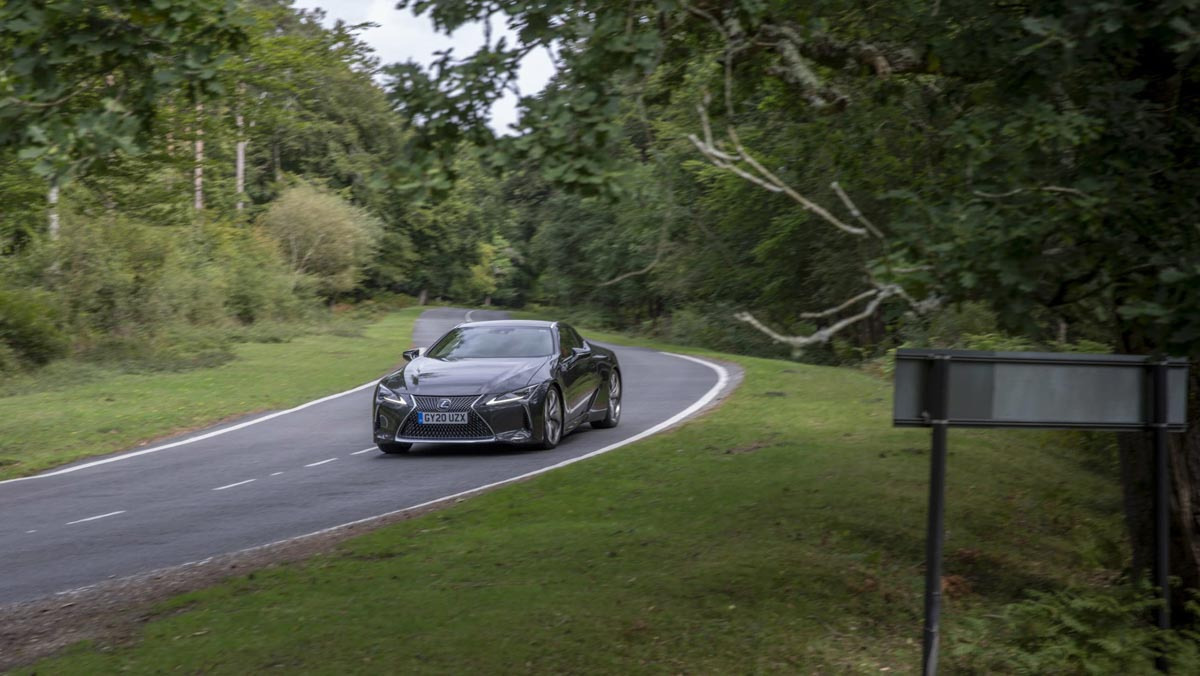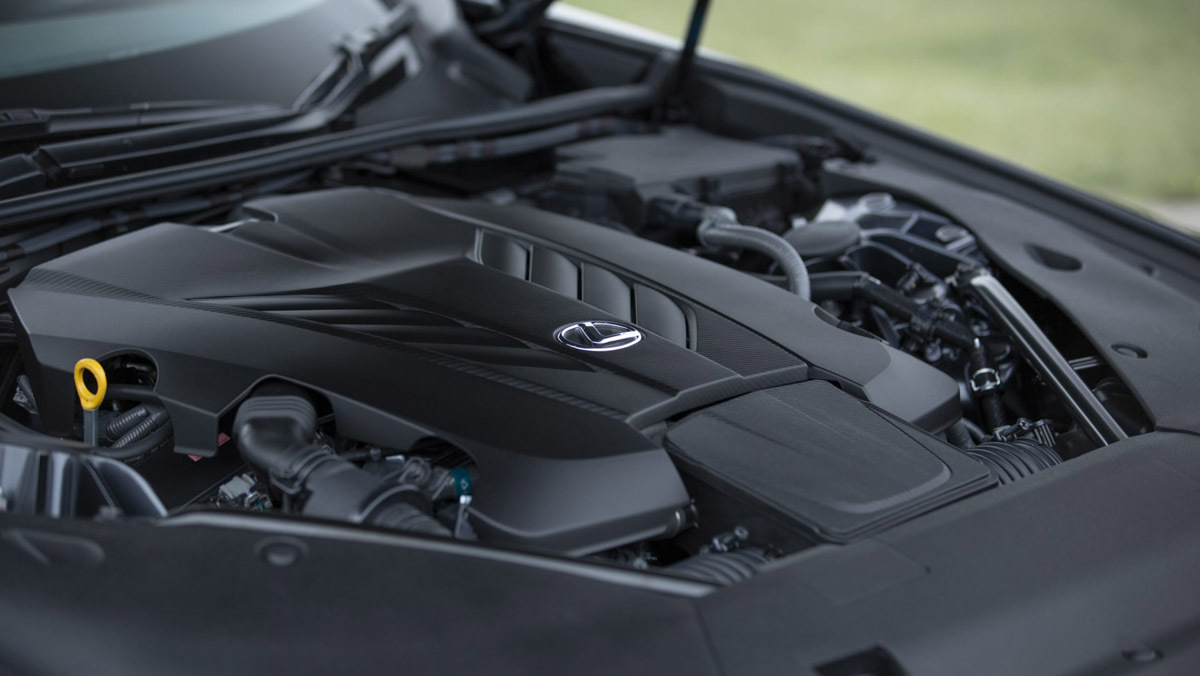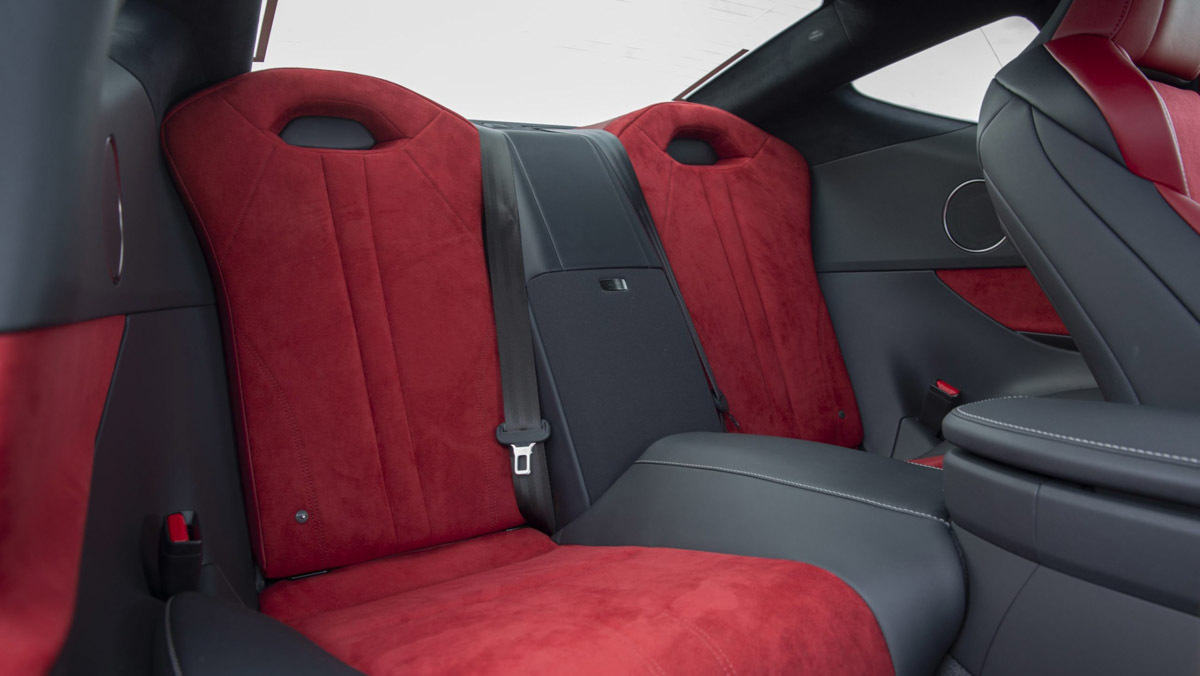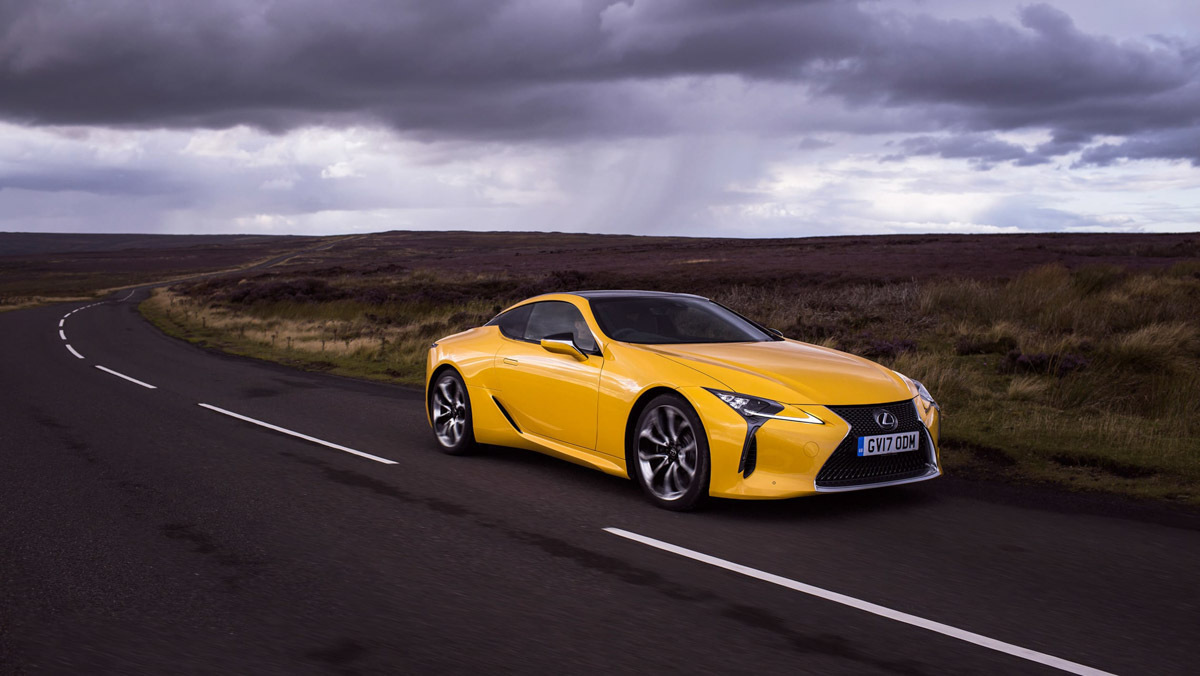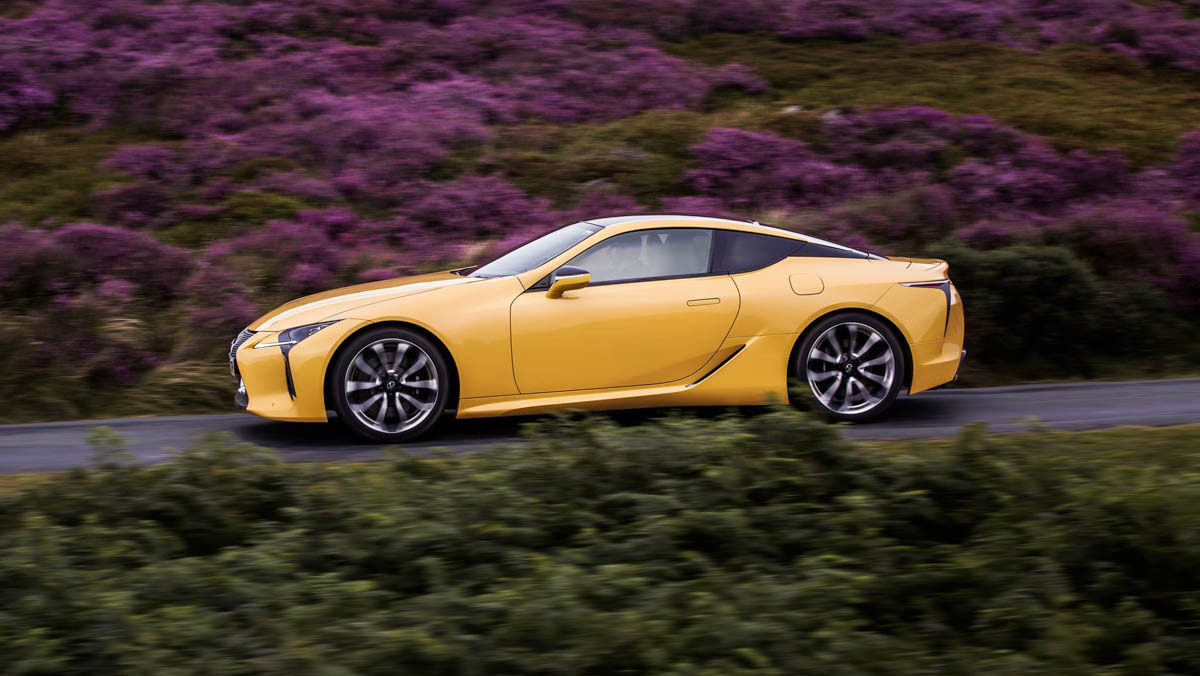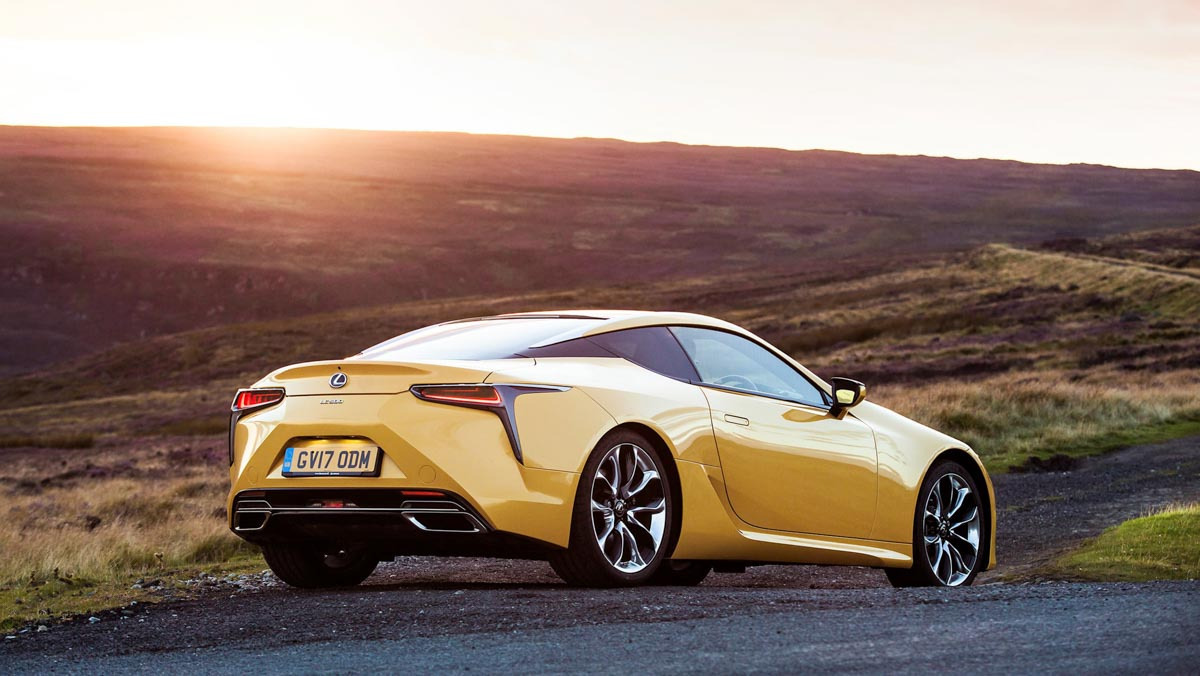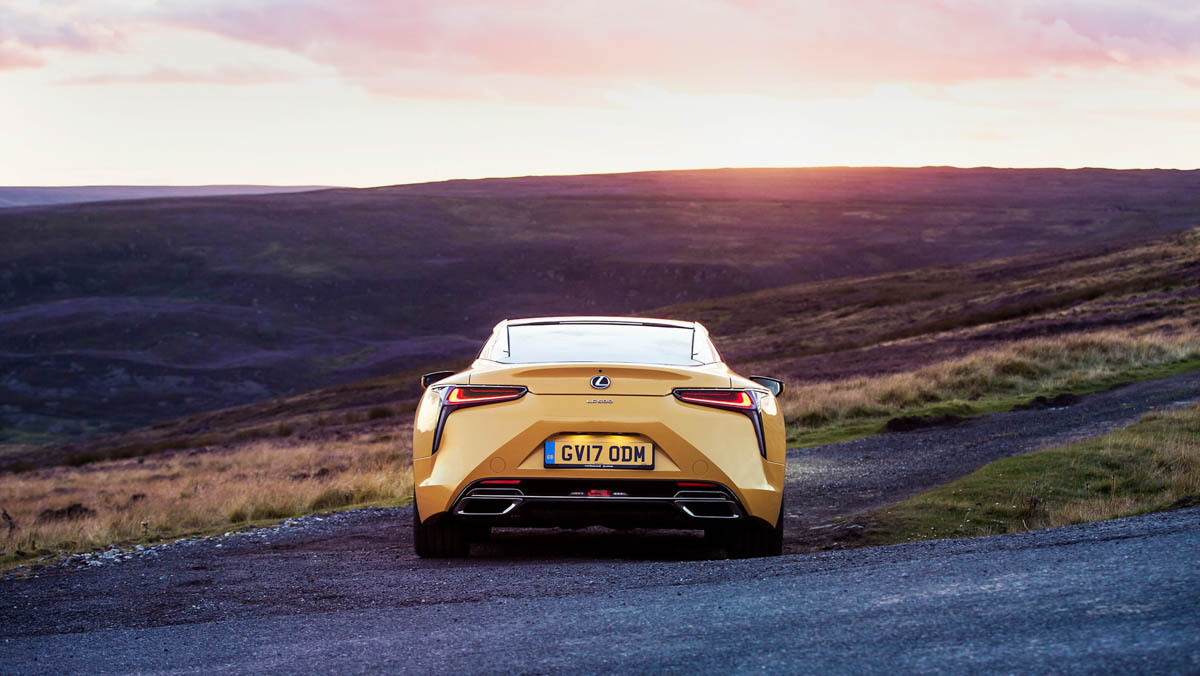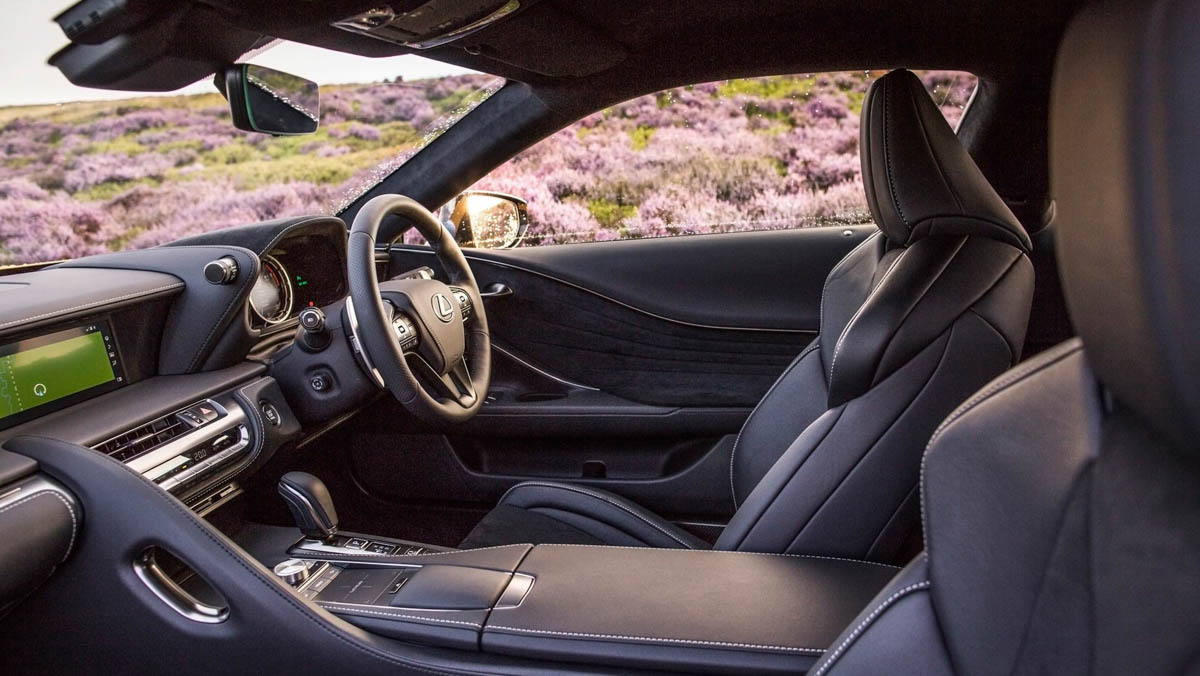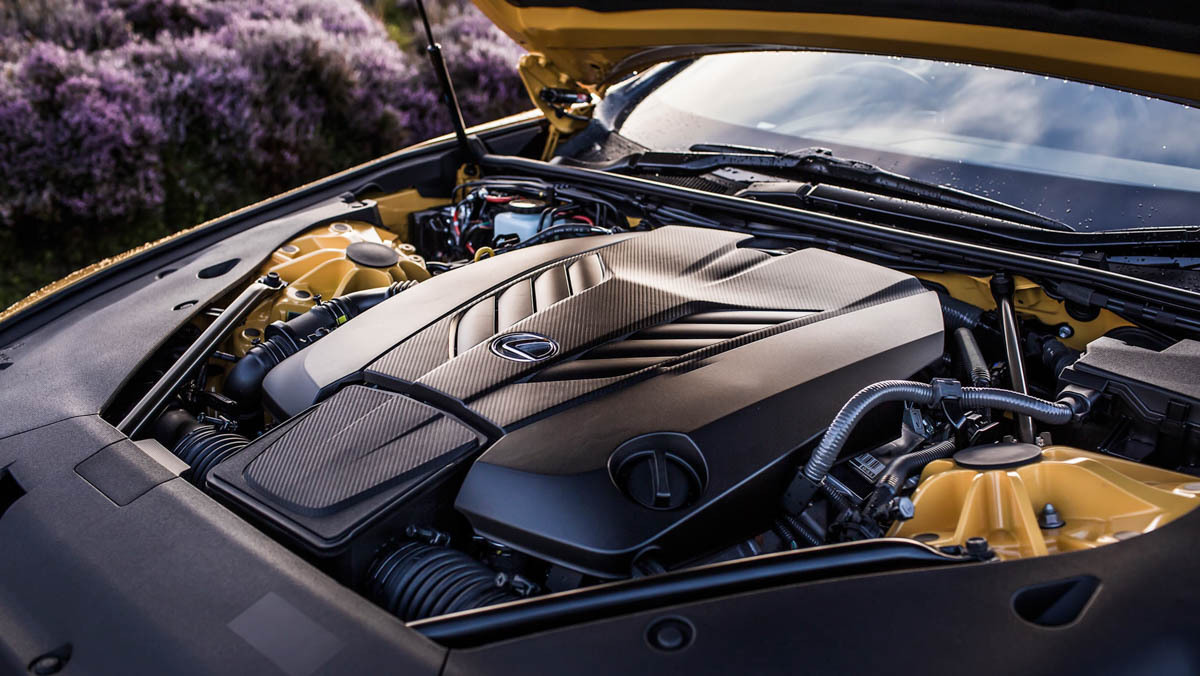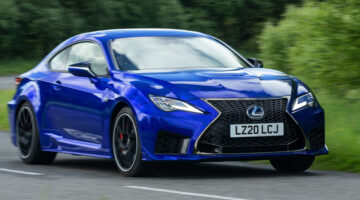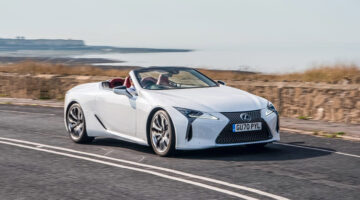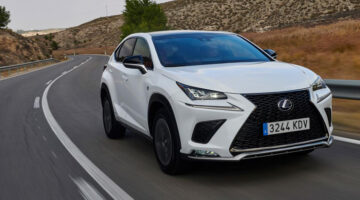Charismatic, challenging, distinctive and above all fun to drive – the LC500 is a triumph that shows up more expensive and extroverted rivals
| Superb chassis balance, substantially improved ride and damping, engine | interior, design | |
| Transmission the weak link, infotainment still iffy, hybrid nothing like as good as the V8 |
PRICE from $106,282
The Lexus LC500 might just be the most underrated new car on sale. While we don’t have that much time for the hybrid LC500h, as a V8 it is a fantastic coupe that delicately straddles the line between sports car, GT and futuristic concept.
As of the 2021 model year, Lexus has treated its halo model to a couple of very subtle updates alongside the introduction of a new Convertible variant, but as a V8 Coupe it still appeals in the same ways it always has, but with even more polish to the package.
> Click here for our review of the BMW M850i
Its changes don’t sound dramatic, but they affect precisely what we thought needed to be addressed in previous models, leaving the LC package otherwise unchanged.
So while the LC is not perfect, the car industry is a better place for its existence. If you’ve not already guessed, we rather like the Lexus LC, and aside from one or two caveats, think it is a truly spectacular road car.
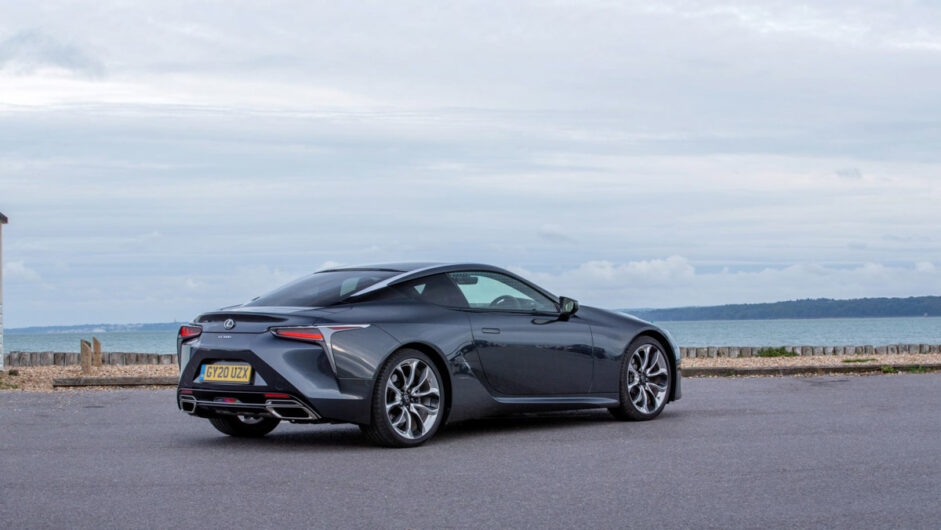
Prices, Specs and Rivals
The LC500 Coupe starts at $111,146, which you might agree is a relatively small amount of money for a car as striking as this. The V8 and V6 hybrid cost the same, and are available in a choice of three trim levels that do without the myriad of individual cost options usually seen in premium rivals.
All models are well equipped, with the entry car coming with standard 20-inch alloy wheels, a leather interior, adaptive dampers, a 10.1-inch infotainment display, a glass roof and an LFA-inspired digital dial set. Move up to the Sport Pack ($118,361) and you’ll also pick up heated and ventilated seats, forged 21-inch alloy wheels, a carbonfibre roof and a split leather and Alcantara interior trim.
It’s the Sport+ that is our pick though, which adds rear-wheel steering and a limited-slip differential to the package. At $126,201 it’s a generous $15k jump over the standard model, but its extra ability makes it a worthwhile choice. Individual options are limited to an upgraded Mark Levinson stereo and head-up display.
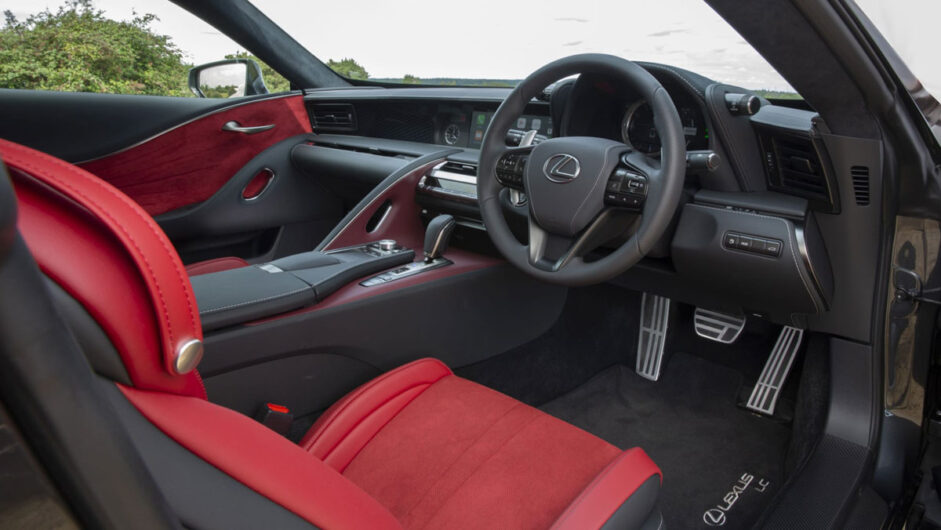
The convertible variant treads a more relaxed GT line than t. Starting at around $15k more than the coupe, it lacks the same precision, but is still a desirable cabriolet, if for different reasons.
At this price, the LC has a variety of rivals, from the new Porsche 911 right through to something much more opulent like the Mercedes S-class Coupe. The BMW 8-series Coupe is probably its most direct competitor right now, with a pocket-friendly 840d model matching the LC hybrid’s more laid-back approach. At just over $105,457 for the 840d M Sport, it’s priced within a few thousand pounds of the Lexus, too.
The LC500 V8’s sporting bent puts it up against some rather more serious rivals, but the car undercuts the Porsche 911 Carrera S ($129,000) and BMW M850i ($137,000), even if it lacks the outright punch of these Germans.
Engine, gearbox and technical highlights
As mentioned above, the LC Coupe is available in two distinct forms, each with a very different character. The more demure, sensible option is the LC500h, which as its name implies, is a hybrid. This is no Porsche Turbo S e-Hybrid-style powerhouse, rather a more laid-back combination of the Toyota group’s naturally aspirated 3.5-litre V6 engine and a small electric motor and lithium-ion battery pack. Instead of being able to run on pure electric as in a plug-in hybrid, the LC500h’s parallel system is more about engine assistance.
The transmission is equally unusual for the class, being a novel type of CVT gearbox. Rather than simply have a single belt-driven gearbox with infinite ratios, Lexus instead has a total of three CVT-like gears, each with three ‘steps’ within it to emulate the feeling of a short, sharp gearshift. There is then a top ‘fourth gear’ which brings the total to ten real and/or virtual gears. This gives an impression of shifting gears as the car accelerates that’s more akin to a normal automatic transmission.
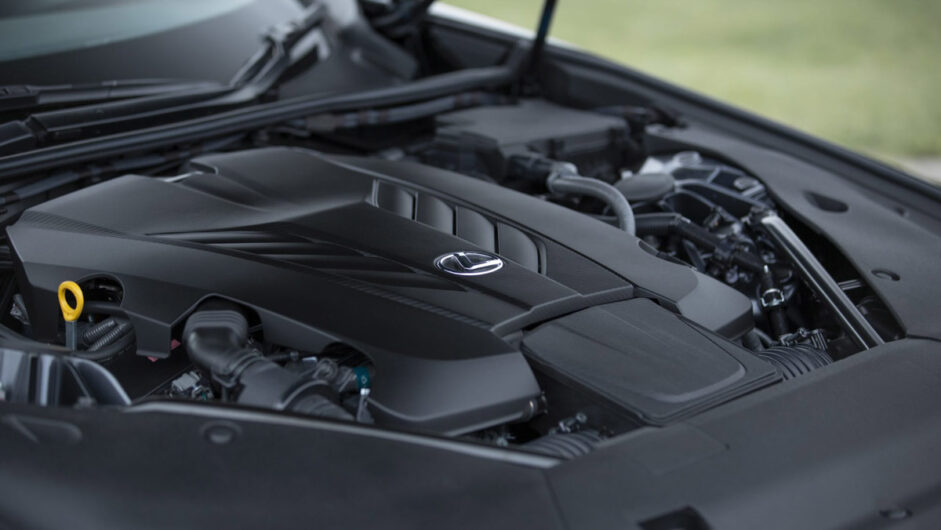
The second engine and transmission combo is more familiar, pairing a naturally aspirated 5-litre V8 with a ten-speed torque-converter automatic gearbox. The engine is the same Yamaha-fettled unit found in the current Lexus RC-F, and it’s a wonderful, sonorous, charismatic unit that totally defines the LC.
The hybrid LC, although not inherently bad, is a calmer GT cruiser. When paired to this V8 though, the LC’s character totally changes. The auto’s shifts are short, sharp and, when in ‘Sports’ mode, decisive, but left to its own devices the gearbox can dither about – a complaint common with many transmissions with so many ratios to choose between.
For the 2021 model year, all LC500 models picked up a subtle set of front suspension upgrades including new forged lower wishbones, lighter coil springs and hollow anti-roll bars. Together, the new components remove 10kg of unsprung weight from the front axle and along with a thicker rear anti-roll bar and slight reduction in spring rate on those new springs, should make it feel pointier and more playful.
Performance and 0-100kph time
The Lexus LC Coupe in both hybrid and V8 forms is not the fastest GT car in its class, that’s for sure. The hybrid, despite a reasonable 359bhp combined power figure, takes a leisurely 5.0sec to reach 100kph. Performance is hardly electric, but as a cruiser the hybrid’s powertrain does just about enough to make it feel sufficiently fast for cruising situations. Top speed is pegged at 250kph.
The LC500 V8 is only 0.3sec quicker, reaching 100kph in 4.7sec, despite the generous bump in horsepower. The V8’s 458bhp isn’t that accessible either, thanks to its arrival way up at 7100rpm, but this is not quite the disadvantage it might seem; we’ll get back to that later. The heavier LC500 Convertible takes longer still to reach 100kph at 5sec, and in this case does feel a tad underpowered thanks mostly to the extra weight it has to carry around in comparison to the V8 Coupe.
If you’re expecting supercar performance from this sporting coupe then, one might need to look elsewhere, but the LC’s magic doesn’t reveal itself on paper. Instead, it’s sometimes because of this lack of performance that the LC feels like it offers something unique.
Ride and handling
While the very subtle changes applied to the new LC in its 2021 model year update might not seem groundbreaking, so fine are the tolerances in modern performance car engineering calibration that they actually make a big difference. The previous model, while well balanced and refined, always lacked a certain level of nuance. Over bumps the suspension was just a little cumbersome, feeling like it couldn’t quite manage the unsprung weight of the wheels, brakes and hubs.
This is precisely what Lexus has focused on in this update, with the LC500 having a substantially improved secondary ride quality that helps unlock the fluidity of the chassis. With less mass for the newly calibrated springs to control, the standard-fit adaptive dampers have a much easier job controlling the weight, giving the new LC a newfound silkiness on all-but patchwork tarmac. This hasn’t come at the expense of body-control though, instead it’s a direct bi-product of removing unsprung weight from key parts of the suspension.
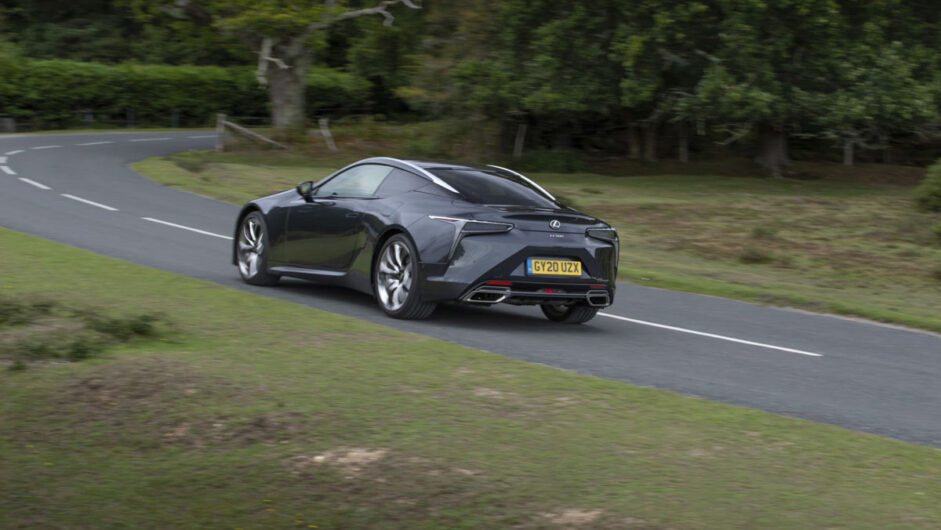
The chassis’s fine balance has also been slightly adjusted by slacking off the front axle’s roll stiffness and giving the rear a tad more. The LC’s playful demeanor is far more accessible as a result, allowing you to confidently over-rotate the rear wheels to adjust your line into a corner. This is helped along by the LC’s relative lack of torque too, without the worry of sudden spikes in torque or turbo lag as is the case with rivals.
The steering, although light, is also improved by the Sport+ model’s four-wheel steering, making the LC dive for apexes with both enthusiasm and enough grip across the front axle to make it stick. The steering ratio feels more relaxed compared to something like a Vantage and its hyper-alert rack, yet because of those turning rear wheels it seems to offer a similar level of agility. The rear axle will then happily follow through with measured throttle inputs, or faithfully lock and slip wide with more aggressive use of the pedal.
The steering, paired with its chassis’s wonderful balance makes what is a big car shrink around you, feeling no more intimidating to throw around than a GT86, in the best way possible. You’re never left wanting for more power either, in fact it’s this relative lack of grunt that seems to more gracefully immerse you into the LC’s character, which is just so entertaining. The LC500, in V8 form anyway, is a truly unique car in the segment; one that all of us in the evo office have been totally won over by.
L/100km and running costs
The obvious response here is that if L/100km and running costs are a consideration, then the LC500h is the better bet. The hybrid will achieve around 8L/100km depending on its driving environment, with the V8 some 28L/100km off that figure. Drive gently with either and these figures are achievable, mind, and thanks to its lack of forced induction, they won’t drop quite as dramatically as in other cars if you drive hard.
If build quality and reliability are a big draw, then Lexus’s typically flawless record is another plus point within the package. The 2UR V8 engine is also noted in all its global applications as superly dependable, be that in a Lexus saloon in the USA or body-on-frame SUV. Parts pricing is also therefore reasonable, and the engine’s relative simplicity also helps in this regard.
Interior and tech
You sit low in the LC, the shelf-like dashboard and high scuttle make it seem like an initially intimidating car to drive, but the visibility through the deep windows and large rear screen quickly melt that anxiety away.
The interior’s innate quality and thoughtfulness is clear. The driver’s display isn’t new for Lexus, having been applied to various models since its debut in the LFA supercar, but its effect is no less dramatic, and it still looks sharp, uncluttered and distinctive.
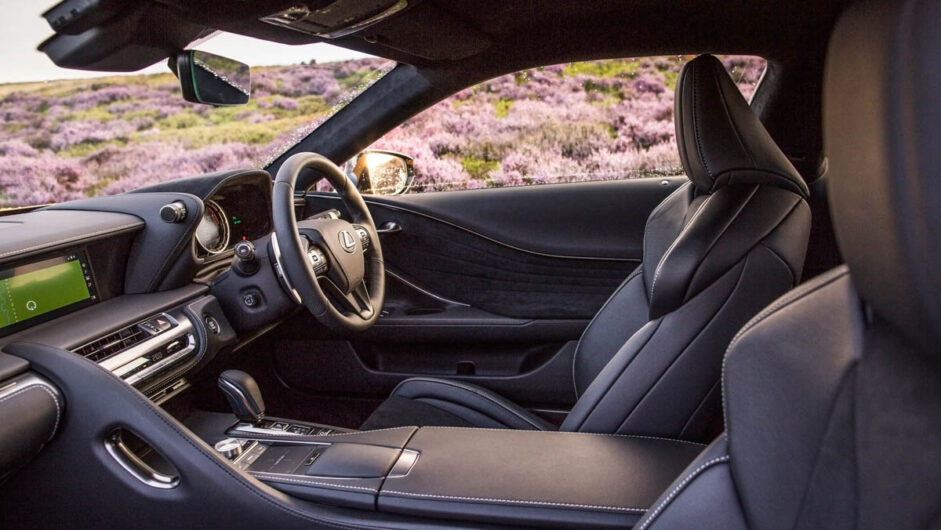
Other elements, even simple ones like the interior door handles, display a different level of thinking that Japanese manufacturers like Lexus employ to great effect. The handle itself is smooth, cold aluminium, and has no backing, instead sprouting from the concave Alcantara sections on the door. Why Alcantara? Lexus has applied it there specifically to brush against the back of your hand as you reach for the door handle. Novel or creepy? You decide, but it all adds to the experience. Be brave with the colour specification and the LC Coupe’s interior can look just as avant-garde as the exterior, which says a lot.
Then we come to the infotainment system, which like so many Lexus systems is a complicated mess of sub-menus and a flawed input method. New for 2021 is the ability to run phone-mirroring applications like Apple Carplay and Android Auto, so for media or nav it’s problem solved, but secondary functions like the heated seats or changing radio stations are still a pain.
The LC’s exceptional build quality is undeniable though. Simple elements – the button to open the glovebox, the feel and movement of the volume knob, the spring of the drive mode selector – feel finely honed and beautifully executed. There are next-to-no cheap plastics, the leather is smooth and aromatic, it feels like an interior of something far more expensive.
Design
The LC is a car of extremes, and the design is no different. For a car with a sub-$138k price tag it turns heads like few others. The shape itself is delicately honed, the bonnet low, the surfacing full, the tapering cabin accentuating the wide hips.
Look closely and the myriad of different finishes and materials can jar, but on the road, once moving, it’s elegant and aggressive – in perfect partnership with its overall character. There are some awkward angles, and if a subtler method of travel is preferred then the LC might be a little much. But credit where credit’s due – the whole package is perfectly accentuated by its design.
The LC is brilliant – it follows no lead, it wants for little and has such a strength of character that on looks alone it makes for a fascinating alternative to the European opposition. But the fact the chassis, engine (as a V8) and interior live up to the outrageous design, makes it a real evo favourite.
This article originally appeared at evo.co.uk
Copyright © evo UK, Dennis Publishing

